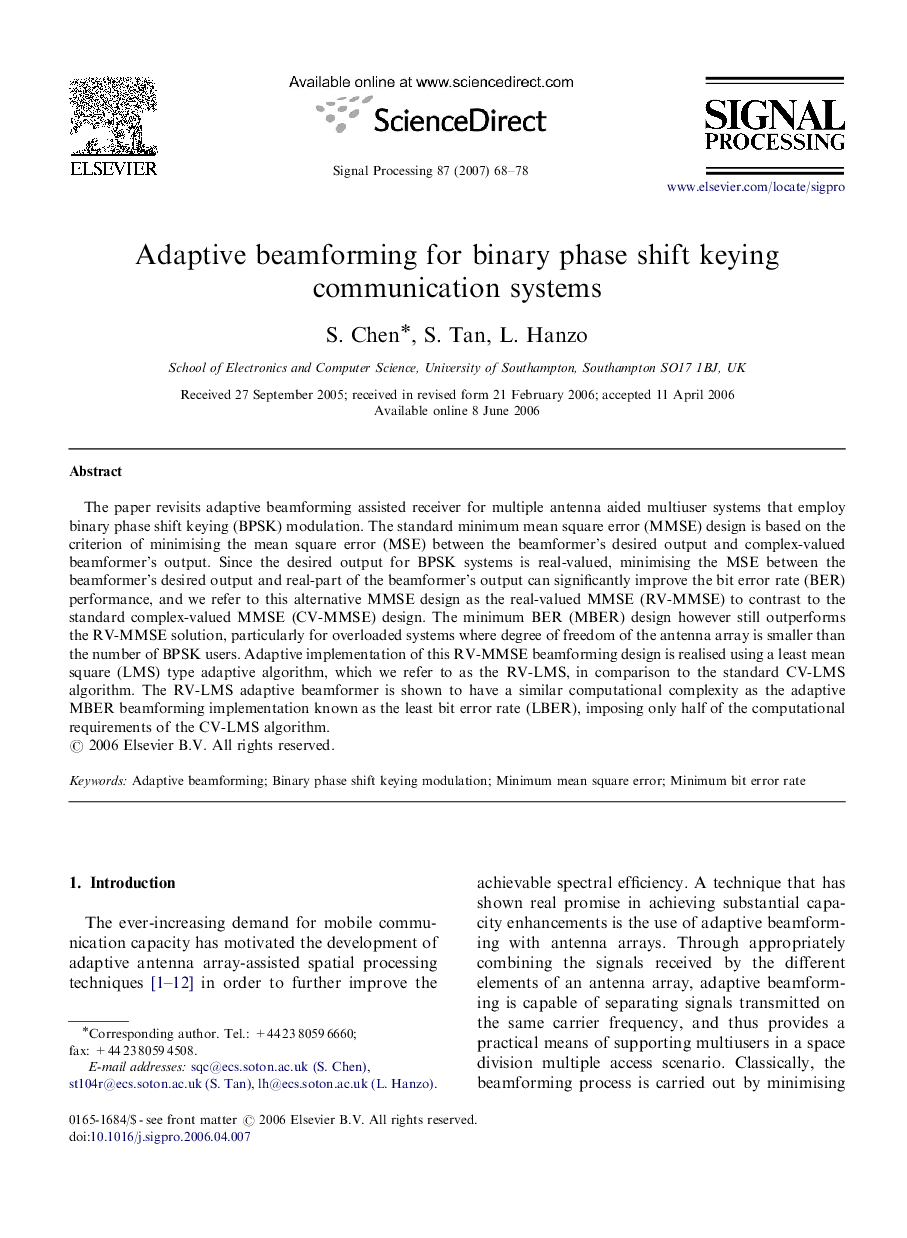| کد مقاله | کد نشریه | سال انتشار | مقاله انگلیسی | نسخه تمام متن |
|---|---|---|---|---|
| 564110 | 875568 | 2007 | 11 صفحه PDF | دانلود رایگان |

The paper revisits adaptive beamforming assisted receiver for multiple antenna aided multiuser systems that employ binary phase shift keying (BPSK) modulation. The standard minimum mean square error (MMSE) design is based on the criterion of minimising the mean square error (MSE) between the beamformer's desired output and complex-valued beamformer's output. Since the desired output for BPSK systems is real-valued, minimising the MSE between the beamformer's desired output and real-part of the beamformer's output can significantly improve the bit error rate (BER) performance, and we refer to this alternative MMSE design as the real-valued MMSE (RV-MMSE) to contrast to the standard complex-valued MMSE (CV-MMSE) design. The minimum BER (MBER) design however still outperforms the RV-MMSE solution, particularly for overloaded systems where degree of freedom of the antenna array is smaller than the number of BPSK users. Adaptive implementation of this RV-MMSE beamforming design is realised using a least mean square (LMS) type adaptive algorithm, which we refer to as the RV-LMS, in comparison to the standard CV-LMS algorithm. The RV-LMS adaptive beamformer is shown to have a similar computational complexity as the adaptive MBER beamforming implementation known as the least bit error rate (LBER), imposing only half of the computational requirements of the CV-LMS algorithm.
Journal: Signal Processing - Volume 87, Issue 1, January 2007, Pages 68–78